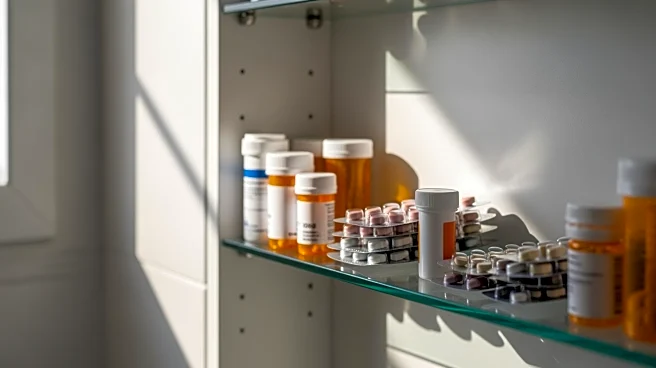What's Happening?
A recent study published in Clinical Epidemiology and Global Health has found that nearly 80% of Bhubaneswar residents engage in self-medication without consulting healthcare professionals. The research,
conducted from 2017 to 2020, highlights a concerning trend, particularly among younger individuals and those from higher socioeconomic backgrounds. The study points to pharmacies dispensing drugs without prescriptions and the internet as major sources of health advice, leading to indiscriminate use of medications like antibiotics. Experts warn that this practice could lead to antibiotic resistance and severe adverse reactions, emphasizing the need for public health interventions to address the issue.
Why It's Important?
The high prevalence of self-medication in Bhubaneswar poses significant public health risks, including the potential for increased antibiotic resistance and adverse drug reactions. This trend reflects broader challenges in healthcare accessibility and the reliance on non-professional sources for medical advice. Addressing this issue is crucial to prevent a public health crisis and ensure safe medication practices. The study underscores the importance of education and awareness campaigns to inform the public about the risks of self-medication and promote responsible healthcare behaviors. It also highlights the need for regulatory measures to control the dispensing of medications without prescriptions.










